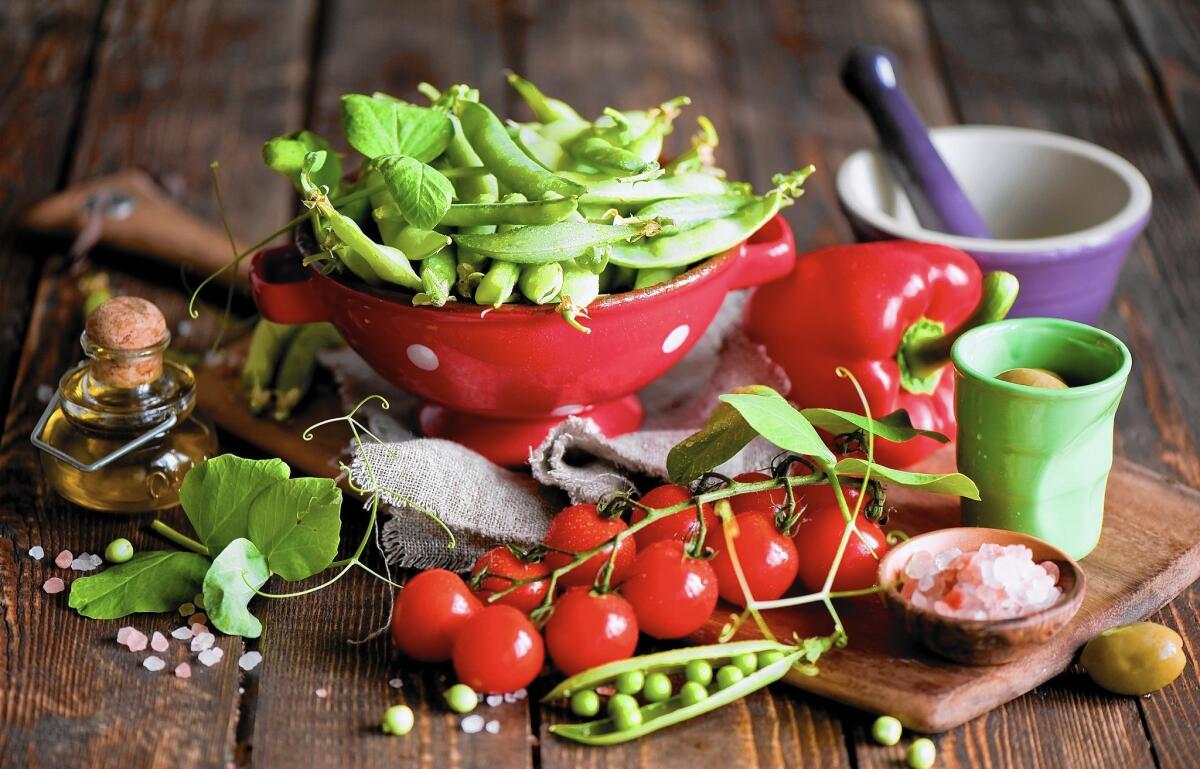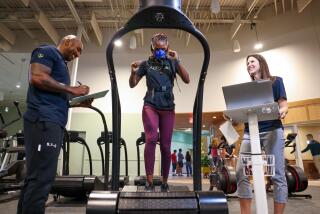Quality-of-life care may help cancer patients live longer, feel better

- Share via
One of the memories Gabriela Dow has from when she was diagnosed with stage three breast cancer at age 35 is standing in the middle of the grocery store, overwhelmed by the decision of which foods to buy.
“It felt like being in a labyrinth,” says the San Diego communications consultant, whose cancer has been in remission for five years. “I’ve navigated difficult things before — I worked as a journalist with CNN, worked for the government, launched a technology startup. But here, I didn’t even know how to feed myself. I wanted to be able to call 911 and have someone help me.”
With two sons younger than 5 when she was diagnosed, her primary focus was survival. But she continued to raise her boys alongside her husband as she underwent chemotherapy, radiation and a double mastectomy, and she wanted to know how to maintain her quality of life during treatment — and how her treatment might affect her life after cancer.
There are 14 million cancer survivors in the U.S., according to the American Cancer Society, and Dow’s concerns are shared by many others. As treatments improve and more people are diagnosed at earlier stages, cancer survivors are living longer, prompting a paradigm shift from merely living to living well.
And it turns out some factors that improve quality of life may also increase survival. A 2013 study in the New England Journal of Medicine compared late-stage lung cancer patients who received standard oncology care with those who also received palliative care (symptom management, psychosocial support and help with decision making) soon after diagnosis. Patients in the palliative care group not only reported improvements in mood and quality of life, but they also received less aggressive end-of-life care and lived 30% longer than those who received only standard care.
“You’d expect there would be a quality-for-quantity trade-off,” says Dr. Daniel Stone, medical director of Cedars-Sinai Medical Group, who was not involved in the study. “But the conclusion was that palliative care makes you feel better and helps you live longer.”
Stone adds that it’s unknown whether the survival advantage came from the positive benefits of psychological support or whether forgoing additional chemo at the end of life made a difference. But, he says, “having someone [on your team] whose orientation is focused on alleviating symptoms is very helpful.”
Managing symptoms and decreasing impairments that come from cancer treatment is closely linked with psychological well-being, says Dr. Julie Silver, associate professor at Harvard Medical School and creator of Survivorship Training and Rehabilitation, or STAR, a certification program that assists hospitals in developing cancer rehabilitation programs.
A rehabilitation physician, Silver launched STAR in 2009 after she had recovered from breast cancer. She was in her 30s when her cancer was detected.
“I was young and felt healthy,” says Silver. “Then I had treatment, and I felt really sick.” After treatment, she underwent exercise testing and found that, since her diagnosis, she had aged three decades in terms of her cardiovascular fitness and strength.
Silver wasn’t offered rehabilitation. Instead, she says, “the message was, ‘Try to go home and heal as well as you can, and then accept the new normal.’” But from her training, she knew there were targeted rehabilitation exercises that could help survivors. And she also knew that, even before treatment begins, lifestyle changes in diet, fitness and mental health could optimize patient outcome and mitigate the side effects of treatment.
For many survivors, a cancer diagnosis offers a bittersweet opportunity to make lifestyle changes that may ultimately save their lives.
“The same habits that make for health and wellness before diagnosis make for health and wellness during treatment and afterwards,” says Stone. “There are no guarantees in life — all you can do is maximize your chances. If you have healthy habits, you are less likely to get cancer, and you maximize your outcome if you do.”
Dow continues to walk almost daily and has joined a farm collective that delivers fresh, seasonal produce. She’s also made mindfulness a part of her life — remembering to pause, take a breath and focus on the present moment. After surviving cancer, she says, “I don’t let things stress me out anymore.”






